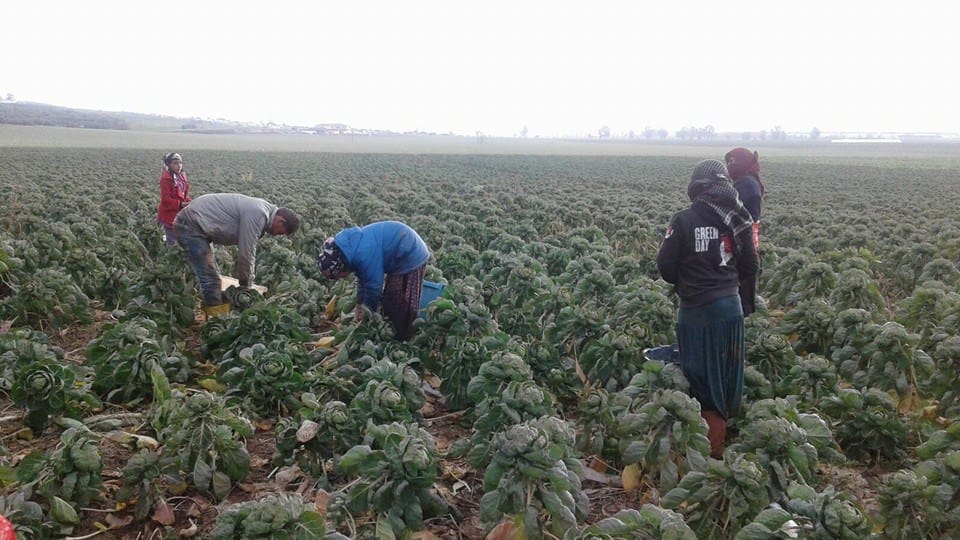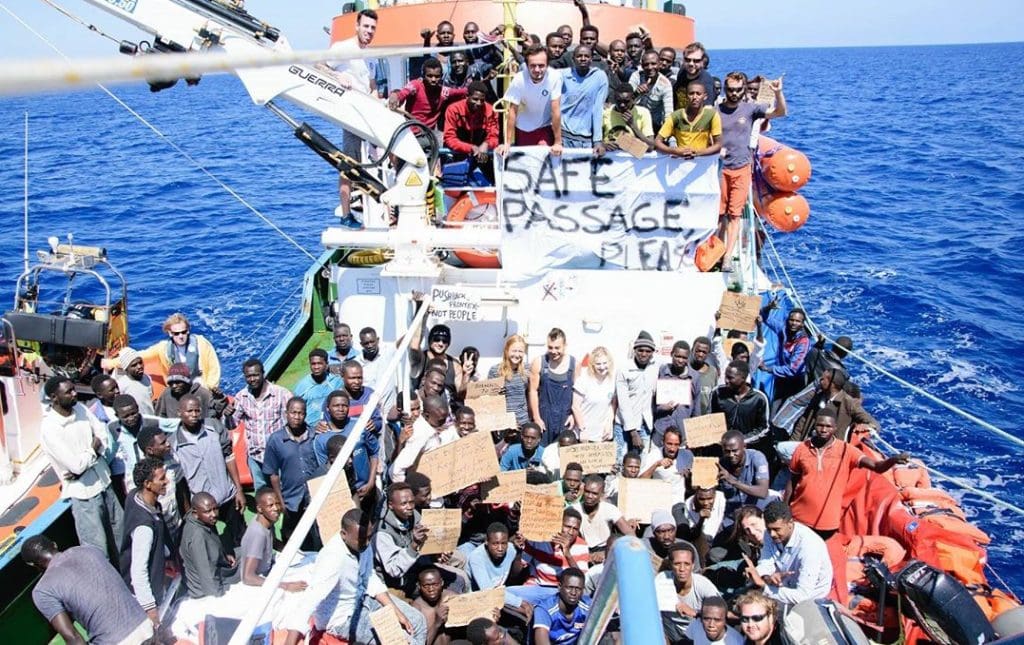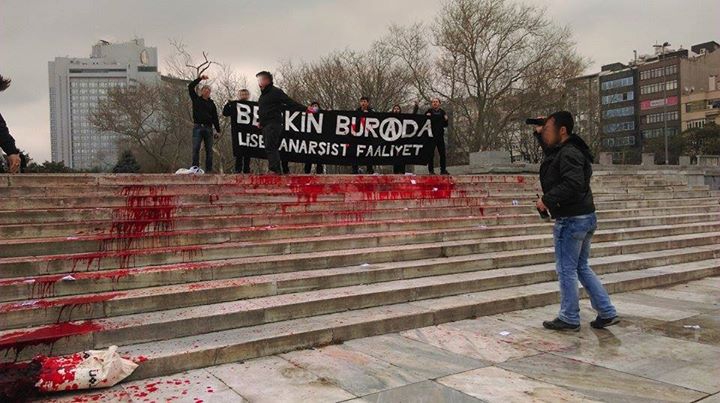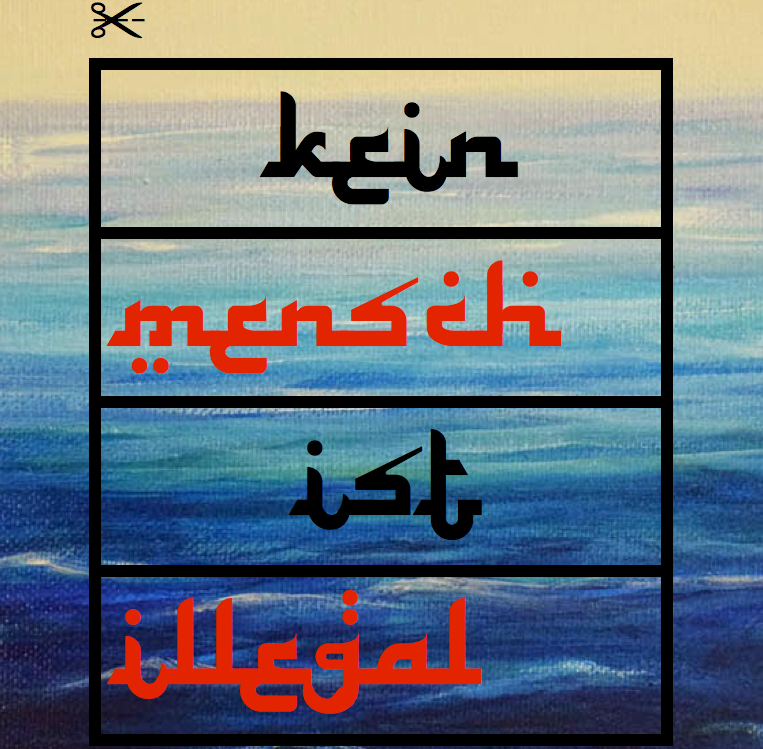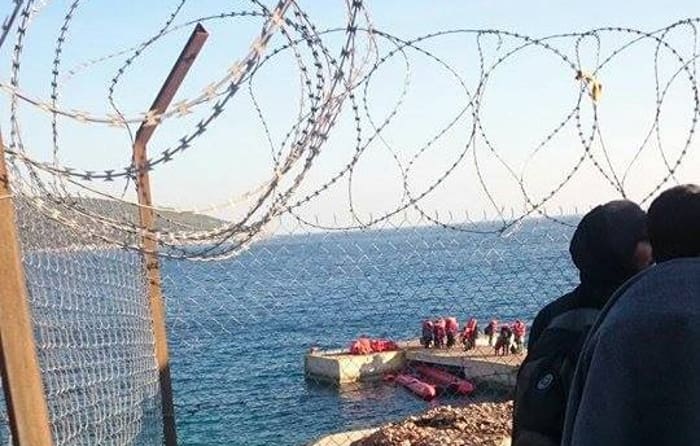“This place is hell and it cannot be fixed.”
by Dilan Taşdemir, Association of Bridging People, for Refugee Movement News From Inside (Refugee Strike Berlin / O-Platz)
13 December 2017 (original post – English and Turkish)
İzmir, a city where 120,000 registered refugees live, has a lot of significance for refugees. For some, it is a place to get a boat to Europe; for others, it is a city they come to in order to find seasonal work in the fields.
Seasonal agricultural labor in Turkey is not something that started with Syrian refugees. For years, Kurdish workers, mostly coming from the east and southeast of Turkey, have been working in agricultural areas on the Aegean coast in the west, in Çukurova in the south, at the Black Sea in the north as well as in Central Anatolia. There have been dozens of academic studies, news articles, and documentaries about this issue, and it is still being studied today. In every respect, seasonal agricultural labor is a great burden to workers and must be considered an injustice.
Seasonal agricultural workers are trying to survive in the face of many problems, including matters of accommodation and nutrition. Children, for example, have to work at a very young age and therefore cannot go to school, and women face many problems due to patriarchy even beyond the exploitation of their labor.

Before the arrival of Syrian refugees to Turkey, the largest group in the agricultural low-wage sector were Kurds, earning 40 to 50 lira ($10 to $13) a day. The sector is still predominantly Kurdish, but now the Syrians have appeared as an even cheaper labor force. Farm owners prefer to employ the latter, because they can be made to work for 20 to 30 lira ($5 to $8) a day. This creates tension between Kurdish and Syrian workers.
At least once a month, we—as the Association of Bridging People—visit tent camps located near the farmlands in Torbalı (İzmir province) where Syrians work. Dayıbaşı [“intermediaries”] play an important role in finding jobs for refugees who fled Syria and live in various parts of Turkey. When farm owners are in need of labor forces, intermediaries call different families and bring them to the harvest area. Workers are allowed to set tents on the edge of the field because this cuts down expenses, but they are obligated to pay rent for the space where the tent is set up. From what we have gathered, the rent is 300 lira ($80) at minimum.

The tent areas do not have good hygienic conditions. There is not even clean drinking water in the area. The needs of dishwashing, bathing, eating, and drinking are met with water pulled from artesian wells. Cooking is done with simple gas cartridges either inside or outside of the tents. Toilets are one of the biggest problems. There are one or two makeshift toilets for all tents, and everyone uses them.

The risk of getting sick from the toilets is very high. People in the fields cannot go to the hospital in case of illness, because they are not registered in İzmir or anywhere else—some of them do not have official “identities.” According to the temporary protection system in Turkey, a Syrian can only benefit from rights and services in the place he or she is registered in. In other words, if a refugee registered in Kilis and has come to İzmir, their registration is useless in practice. Because of this, they often hear this at the hospitals: “Go and get examined at the place you are registered.”
Women and children in the camps are exposed to the biggest problems. The women we meet work in the fields from morning until evening, if they aren’t sick or too old. When they come back from work, they take care of the children, the elderly, and the sick; they do the general cleaning, cook food to eat, or take care of other burdens that remain.

Last year in November, when a three-month-old Syrian baby named Noaf died in the neighborhood of Eğerci Street in Torbalı, we went to the region immediately. On the way, we fetched clothes, food, blankets and cleaning supplies that we thought might be needed there. When we went to the home where the baby died, we encountered the worst living conditions we have ever seen. It was a ruin without a single solid wall, situated inside a fairly large garden. About 25 people including children were living in two rooms of this ruined house. There was no toilet, bathroom, kitchen, or water. They put a blanket around a corner of the garden and used it as a toilet. They stayed in this place because it was close to the field they worked on.
According to the news, Noaf became ill under these bad conditions and had not been treated because he did not have any officially issued identity. When we went to see his mother, she looked almost dead. She had not slept since she lost her baby. She had attempted suicide twice. Some of her female relatives living in the same place told us that they had also attempted suicide before. It was most painful to see that despite her trauma she continued to go to the fields to work for 35 lira ($9) a day.

While talking to the women, we witnessed their deep desperation. They told us that the place they stay is hell and cannot be fixed. Half of the household are children; those older than seven or eight work in the fields. One of the girls aged between ten and twelve stayed home to look after the small children. In other words, none of the children of school age has access to education. When we went to visit them, four women who had just given birth were going to the fields with their babies. They fed their babies during the break and then got back to work. Because it is not easy to find seasonal agricultural work, they have to go to work if they do not want to lose their jobs, even though it is routine for their salaries to be paid months late. Sometimes they are compelled to accept half the money they were promised.
As we were leaving the camp, locals confronted us. They asked why we were helping the Syrians. They said that Syrians are actually very rich, and they send their money to Syria to buy fields and houses there. They argued that the Syrians’ place is very dirty, that running away from war is treachery, and that their own ancestors had not escaped in the battle of Çanakkale. While they were telling us all this, they did not even know about the three-month-old baby who had died because of hunger, lack of care, and bureaucratic obstacles, right next door to them.

A couple of months after our visit, the locals in Torbalı attacked the tents of the refugees and burned them. After this incident, which allegedly was the outcome of a fight among children, hundreds of refugees had to leave their work and property and run away—a story so similar to their escape from Syria!
This is a very clear way to understand the seasonal agricultural labor of refugees: think about all the things a person needs to live, and then imagine you have to live without any of it. I am talking about a home, water, food, clothing, hygiene, education, social life, the right to health, and dozens of other basic needs. Yet, for some refugees, seasonal agricultural labor is perhaps the only way to buy some bread.
Many refugees are working in this sector because they also worked as agricultural workers in their country. The farm owners are pleased to have access to cheap labor. But to rectify these conditions of misery, everyone—especially Europe—must act as soon as possible. To meet the explicit needs of these people, an urgent solution must be found, such as establishing mobile registration centers and health care opportunities in villages, or providing children with access to education rather than leaving them no choice but work in the fields.

Text lightly edited for clarity by Antidote
All images: Halkların Köprüsü Derneği [Association of Bridging People], unless otherwise noted. Featured image: Metehan Ud

